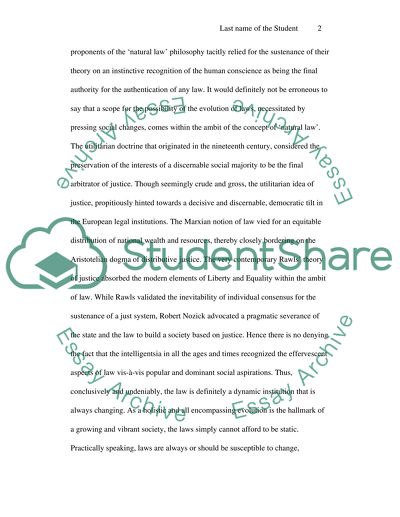Cite this document
(“Law: A Dynamic Institution Essay Example | Topics and Well Written Essays - 2500 words”, n.d.)
Retrieved de https://studentshare.org/miscellaneous/1526941-law-a-dynamic-institution
Retrieved de https://studentshare.org/miscellaneous/1526941-law-a-dynamic-institution
(Law: A Dynamic Institution Essay Example | Topics and Well Written Essays - 2500 Words)
https://studentshare.org/miscellaneous/1526941-law-a-dynamic-institution.
https://studentshare.org/miscellaneous/1526941-law-a-dynamic-institution.
“Law: A Dynamic Institution Essay Example | Topics and Well Written Essays - 2500 Words”, n.d. https://studentshare.org/miscellaneous/1526941-law-a-dynamic-institution.


